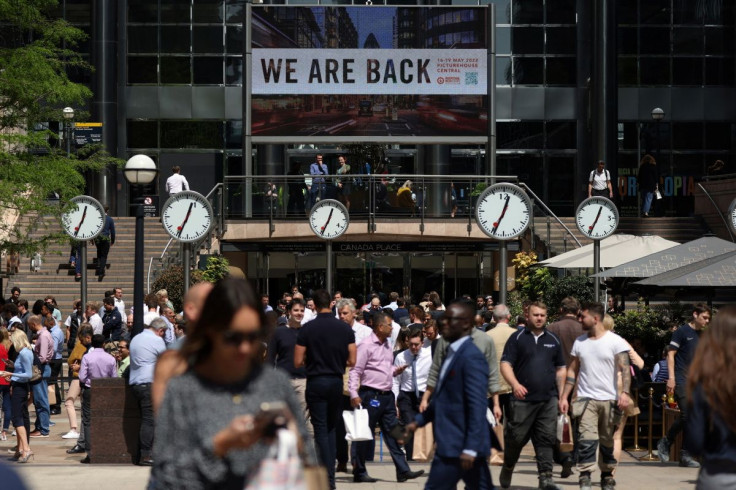Inflation Surge Pushes Up Britain's Budget Deficit

A surge in debt costs - pushed up by soaring inflation to twice their previous monthly peak - added to Britain's budget deficit in June, which was its highest since April 2021, data showed on Thursday.
The Office for National Statistics said public sector net borrowing excluding state-owned banks rose to 22.879 billion pounds ($27.4 billion) last month from 12.560 billion pounds in May.
A Reuters poll of economists had pointed to a deficit of 23 billion pounds.
The figures showed Britain racked up debt interest of 19.4 billion pounds in June alone, more than double the previous record.
Graphic: GRAPHIC-UK racks up record debt interest bill in June-

The ONS said the leap in debt costs reflected a big April increase in the retail price index gauge of inflation, which is the benchmark for index-linked government bonds.
The uplift applied in June to these linkers - which represent roughly a third of the stock of British government bonds - was 16.7 billion bounds.
Over the first three months of the 2022/23 financial year starting in April, Britain has borrowed 55.4 billion pounds.
While this is 5.7 billion pounds less than over the same period last year, it represents a roughly 3.6 billion pounds overshoot versus forecasts made in March by the Office for Budget Responsibility watchdog.
The OBR warned that with inflation expected to peak even higher than previously thought, further spikes in debt spending were on the cards.
"With several external forecasters now predicting that the CPI measure of inflation could reach 12% in October - over 3 percentage points higher than the peak in our March forecast - further significant upside surprises in debt interest spending can be expected through the year," the OBR said.
Ruth Gregory, senior UK economist at Capital Economics, a consultancy, said the overshoot of the deficit compared to the OBR's forecasts "may limit the ability of the next Prime Minister to provide more relief for households."
The balance between tax and spending has been hotly debated between the two remaining candidates in the race to replace Boris Johnson as prime minister.
Foreign Secretary Liz Truss has promised immediate tax cuts, something the other contender, former finance minister Rishi Sunak, says risks fuelling inflation.
In response to the data, finance minister Nadhim Zahawi said he recognised there were risks to the public finances, including from high inflation which struck a 40-year high last month.
($1 = 0.8338 pounds)
© Copyright Thomson Reuters 2024. All rights reserved.




















